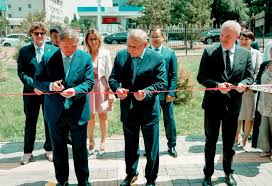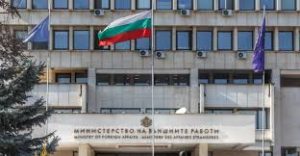Pakistani diplomats visit Xinjiang

Beijing: Diplomats from Pakistan and other regional countries visited Xinjiang region last week, and got highly impressed by the recent measures taken by the Chinese government for ensuring peace and prosperity for their people. The regional government of the region has invited diplomatic envoys and representatives from Pakistan, Russia, Kazakhstan, Kyrgyzstan, Uzbekistan, Tajikistan, India, Indonesia, Malaysia, Afghanistan, Thailand and Kuwait. According to the Chinese media’s reports, they visited local markets, farmers, educational institutions, mosques, factories and vocational education centers. Throughout the trip, members of the group interacted with local vendors, students and workers in Xinjiang and learned about the region’s progress in maintaining social stability, improving people’s livelihoods and developing the local economy. They said they expected to cooperate with Xinjiang in the fields of culture, tourism, economy and trade. At the Grand Bazaar in the regional capital, Urumqi, Mumtaz Zahra Baloch, charge d’affaires at the Pakistan embassy in China, said Xinjiang’s cultural vitality and people’s hospitality had impressed her deeply. A Pakistani businessman at the bazaar told Baloch that he had married a Uygur woman and is happy with his life and work in Urumqi. At the Xinjiang Islamic Institute, which offers three-year bachelor programs and religious training, Sameeh Johar Hayat, Kuwait’s ambassador to China, encouraged the students to learn more and contribute what they learn to the development of their country. In Kashgar, the diplomatic envoys also visited a local economic development zone. Upon seeing the wide variety of imported products from Europe, Central Asia and Southeast Asia in the zone, Piriya Khempon, Thailand’s ambassador to China, said the trip had deepened his understanding of the Belt and Road Initiative, which he said is important to Kashgar’s development. Khempon said he believed the city is bound to become a lot better in the coming years thanks to its geographic advantages. The envoys also visited the Id Kah Mosque in Kashgar, the largest mosque in Xinjiang, and were briefed about its improved facilities. Mohammed Hosnie Shahiran Ismail, counselor of the Malaysian embassy in China, said that through the tour he saw that the Chinese government attaches great importance to religious freedom, and religious activities are protected by the State. The trip refreshed his understanding of Xinjiang, he said, adding the region is different from what Western media has portrayed. At a vocational education and training center in Kashgar, students study ethnic musical instruments, calligraphy, painting, law and other topics. The envoys asked in detail about the students’ life in the center and played ping-pong and basketball with them.





